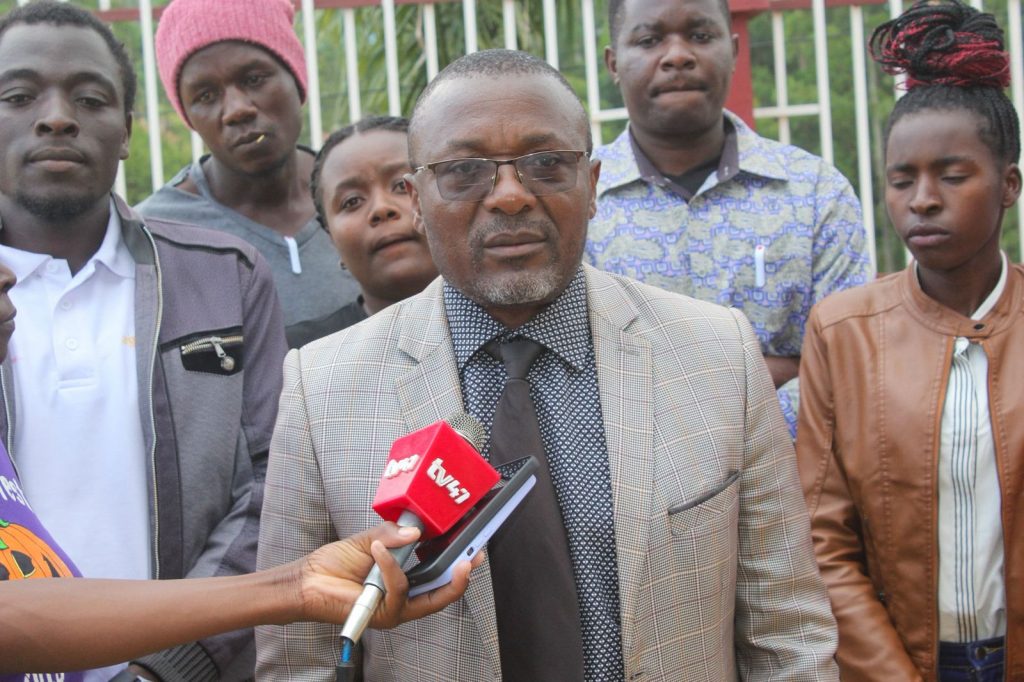The participation of youth, women, and smallholder farmers in policy and decision-making processes has been underscored as a key pillar for promoting inclusive governance and sustainable development.
Speaking during a workshop aimed at enhancing the capacity of these groups to engage in public policy, John Khamala, Director of Public Participation and Civic Engagement at the County Government of Vihiga, emphasized the importance of inclusivity in governance.
He noted that public participation strengthens democracy, enhances transparency, and allows citizens to feel a sense of ownership in government processes.
“It is crucial for women and youth to take part in public participation because it brings legitimacy to government documents and ensures that decisions reflect the needs of people,” said Khamala.

He went ahead to note that many times, women, youth, and smallholder farmers are left out of key governance processes, yet their involvement is important
The workshop, convened by Participatory Ecological Land Use Management-PELUM Kenya, sought to strengthen the capacity and engagement of youth, women, and smallholder farmers in shaping public policy and decision-making processes that affect their livelihoods and development priorities. Participants were sensitized on how to organize themselves, share their views, and take up leadership in influencing policy implementation at both the county and national levels.
Mary Irungu, policy and advocacy expert from PELUM Kenya, highlighted that youth and women form the backbone of agricultural production and community development in Kenya.
She noted that despite their vital role in food production, climate change adaptation, and rural innovation, their contribution is often underrepresented in key policies such as agriculture, climate, and the livelihood framework
Irungu stressed the need for youth and women to move beyond being beneficiaries of government programs and instead become active contributors and change-makers in policy processes.
She emphasized that their firsthand understanding of community realities makes them valuable voices in shaping effective and responsive policies.
Vihiga County launched the Agroecology policy earlier this year, aiming to promote sustainable farming practices that improve food security, protect the environment, and strengthen local food systems.
Irungu notes that the initiative aligns with the National Agroecology Strategy for Food System Transformation (2023-2024), which guides counties in developing localized agroecology policies and strategies.
“Some counties, including Murang’a and West Pokot, have also launched their agroecology policies, while others like Bungoma, Trans Nzoia, Kakamega, and Laikipia are in the process of developing theirs, which is a good move and must be encouraged in other counties while allowing every voice to be captured in the formation, including those of women and youth,” said Irungu.
She underscored the importance of counties tailoring their policies to local needs and contexts rather than merely replicating national frameworks. This, she said, would ensure that policies are practical, implementable, and responsive to community realities.
The forum also shed light on the growing challenges facing the agricultural sector, all the way from climate change and declining soil health to the increasing prevalence of non-communicable diseases linked to chemically treated and processed food. In unison, there was a conclusion that agroecology is a sustainable approach to food production that enhances soil fertility, promotes biodiversity, and ensures safe food for all.
As this conversation on inclusive governance continues, youth, women, and smallholder farmers need to step forward and take their rightful place in shaping the future of their communities.
Their active participation in policy spaces will not only strengthen democracy but also ensure that decisions made at the county and national levels reflect the voices and aspirations of those most affected.
